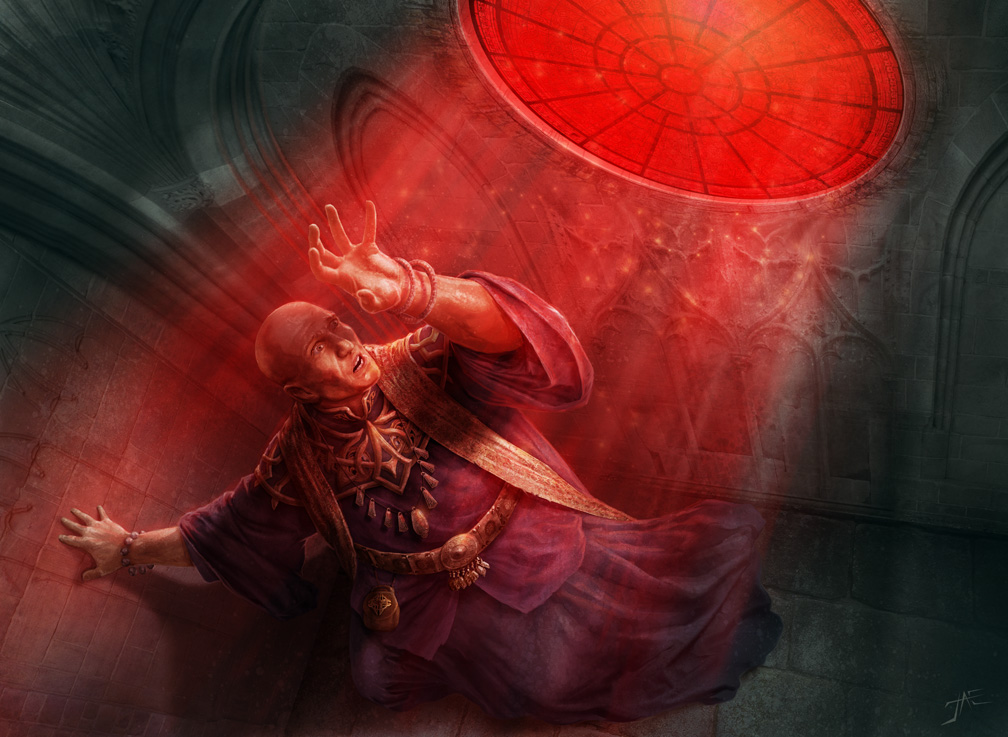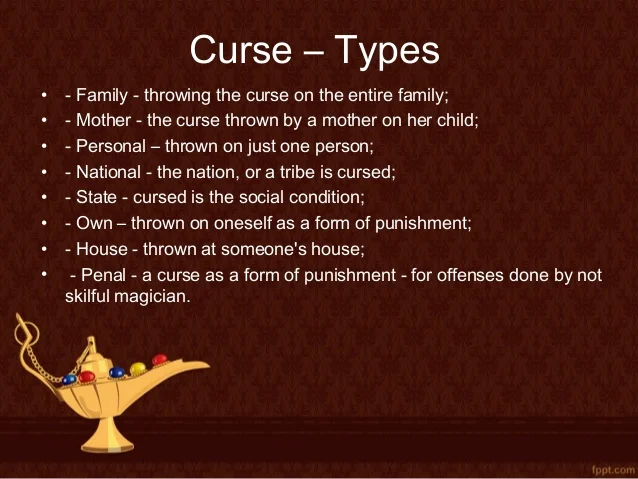Have you ever heard the saying, "What is the curse of six daughters?" It sounds like something from an old story, doesn't it? For many, the idea of a "curse" might bring to mind images of dark magic or bad luck. But when people talk about a "curse" in this way, it often means something different, something more about life's challenges or society's expectations. So, it's almost a way to describe a difficult situation that someone feels stuck in.
This phrase, while perhaps not widely known today, points to old beliefs and feelings about family, about gender, and about what was thought to be a good family structure. It makes you wonder, doesn't it, why having many daughters could ever be seen as a problem? There's a lot packed into that simple question, and we can explore what it might truly mean for people, both in the past and even now, you know?
Today, we can look at this idea with fresh eyes. We can think about what a "curse" really is, and how such a phrase came to be. It's not about actual magic, but more about the weight of expectations and the way people used to see things, which is that some things were just harder than others.
- The Drill That Will Pierce The Heavens Jp
- Crochet Cow Pattern
- Straw Hats Quotes
- White Leg Warmers Fuzzy Cheap
- Strange Change Toy 1967
Table of Contents
- Understanding the Word "Curse"
- Historical and Cultural Perspectives on Family Size
- The Winner's Curse: A Different Kind of Burden
- Rethinking the "Curse of Six Daughters" Today
- Challenging Old Ideas
- What About the People Who Ask?
Understanding the Word "Curse"
When we hear the word "curse," our minds might jump to stories of witches or ancient spells. And yes, that's one way to think about it. For example, as we see in "My text," a "curse" often means a kind of harmful magic, maybe even black magic. It's something that causes bad effects right away, for a short time, and you can see the damage happen.
But the word "curse" has other meanings too, you see. It can describe a situation that feels like a heavy burden, something that brings problems or unhappiness, even if no magic is involved. Think of it like a very difficult challenge that keeps happening. This is more like how people might have used the phrase "curse of six daughters." It's not a spell, but a feeling of being weighed down by circumstances or by what others expect.
So, the meaning can shift a bit, depending on the conversation. It could be a strong wish for bad things to happen to someone, or it could be a way to talk about something that just brings a lot of trouble. It's a word with a lot of different uses, really.
- Crochet Swimsuit
- Black Pants Brown Shoes
- Yoteh Artist
- Vergil From Devil May Cry 256x256 Profile Picture Download
- Cross Backgrounds For Iphone
Historical and Cultural Perspectives on Family Size
To understand why having many daughters might have been called a "curse," we need to look back at how families were seen in different times and places. For a very long time, in many cultures, having a large family was a good thing, a sign of strength and wealth, in a way. But the gender of the children often mattered a great deal too, you know?
In many societies, there was a strong wish for sons. This was tied to many things, like carrying on the family name or taking care of parents in their older years. It's just how things were set up for a long time.
The Desire for Sons
Historically, sons were often seen as vital for a family's future. They could inherit land, work the fields, or learn a trade, ensuring the family's money and standing would continue. A son might also be expected to care for his parents as they aged, which was a very important job.
Daughters, on the other hand, would usually marry into other families. This meant their work and their children would belong to their husband's family. So, in some ways, having many daughters could feel like losing resources or future support for the original family, at least that's how some people saw it.
Economic and Social Pressures
Beyond just family names, there were real economic reasons for wanting sons. In many places, a daughter needed a dowry to marry, which was a significant cost for a family. Imagine having to provide a dowry for six daughters! That could truly drain a family's money and make things very hard, it really could.
Also, daughters might not have been able to do the heavy farm work or other jobs that were often needed to keep a family going. This wasn't because they couldn't, but because society often limited their roles. So, if a family had only daughters, they might worry about who would do certain tasks or who would provide for them later on. It was a bit of a tricky situation for some families, you know?
The Winner's Curse: A Different Kind of Burden
It's interesting to think about different kinds of "curses." Our "My text" also talks about "the winner's curse." This is not about magic at all. It's an idea from business and economics, especially in auctions. It means that sometimes, after working very hard and finally winning something, you find out you've actually put yourself in a bad spot. It's like you won, but the victory itself brought a problem, so.
This "winner's curse" shows that a "curse" can be something that seems good at first, but then turns out to have hidden downsides. It's a very different idea from a magic spell, isn't it? It's more about unexpected negative results from something that seemed like a success.
How does this relate to having six daughters? Well, it might be a stretch, but you could think of it this way: a family might be blessed with many children, which is often seen as a good thing. But then, if all those children are daughters, and society places heavy financial or social burdens on families with many daughters, then the "blessing" of many children could feel like a "curse" because of those burdens. It's a bit like winning something that comes with a high, hidden cost, that.
Rethinking the "Curse of Six Daughters" Today
In our current times, the idea of a "curse of six daughters" seems very old-fashioned, doesn't it? Many of the reasons it might have been seen as a "curse" in the past just don't hold up anymore. For one thing, daughters today have many more opportunities. They can work, own property, and support their families just as well as sons, sometimes even better, you know?
Also, the idea of family size and gender preference has changed a lot. Many people now choose to have smaller families, and the gender of their children is less important than it once was. What matters more is having healthy, happy children, and raising them well, which is that.
A large family, with six daughters, could be a source of great joy and strength. Imagine all the love, support, and different personalities in such a household! Each daughter brings her own special qualities, and together they form a powerful bond. It's a rather lovely thought, isn't it?
Challenging Old Ideas
The phrase "What is the curse of six daughters?" is a reminder of how societal beliefs can shape our views of family and gender. It highlights how old ideas about what a family "should" look like could put unfair pressure on people. It's a good thing we can now question these old ways of thinking, wouldn't you say?
We're moving towards a time where a person's worth, or a family's worth, is not tied to the gender of their children. Instead, it's about the love, care, and opportunities given to all children, no matter if they are sons or daughters. This shift in thinking is a very positive change, for sure.
It's also a chance to celebrate the unique strengths and contributions that women bring to families and to the wider world. Daughters are not a burden; they are a gift, and they bring so much to life, you know? It's important to remember that.
To learn more about changing family structures on our site, and link to this page here for more on cultural shifts.
What About the People Who Ask?
Here are some common questions people have when they think about this old phrase:
Is having all daughters truly a disadvantage?
In modern times, no, not really. While historical or cultural reasons might have made it seem like a disadvantage in the past due to societal roles or economic pressures, today, daughters contribute just as much, if not more, to a family's well-being and success. It's really about the individual children and their chances, that.
Where did the idea of a "curse" come from for having many daughters?
The idea likely comes from historical societal norms where sons were preferred for reasons like inheriting property, carrying on the family name, or providing labor and old-age support. Daughters often required dowries and would join another family, which could be seen as a financial or social "loss" to their birth family. It's a reflection of older times, basically.
Are there cultures today that still prefer sons over daughters?
Yes, unfortunately, in some parts of the world, a preference for sons still exists, often due to deeply rooted cultural, economic, or religious beliefs. However, global efforts are helping to change these views, promoting gender equality and valuing all children equally, you know? It's a slow process, but it is happening.
So, the "curse of six daughters" is less about a real curse and more about how society used to view things. It's a phrase that reminds us of a time when gender roles and family expectations were very different. Today, we can appreciate the beauty and strength in families of all kinds, celebrating every child for who they are, which is that. It's a much kinder way to see the world, truly.


